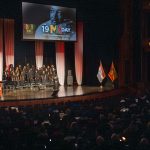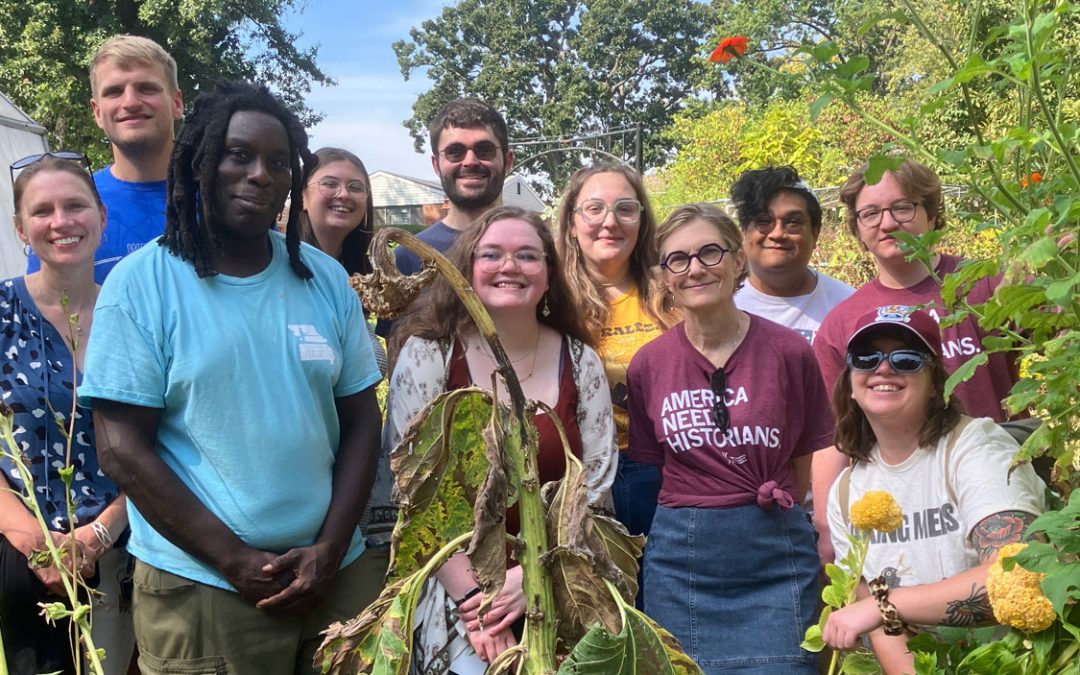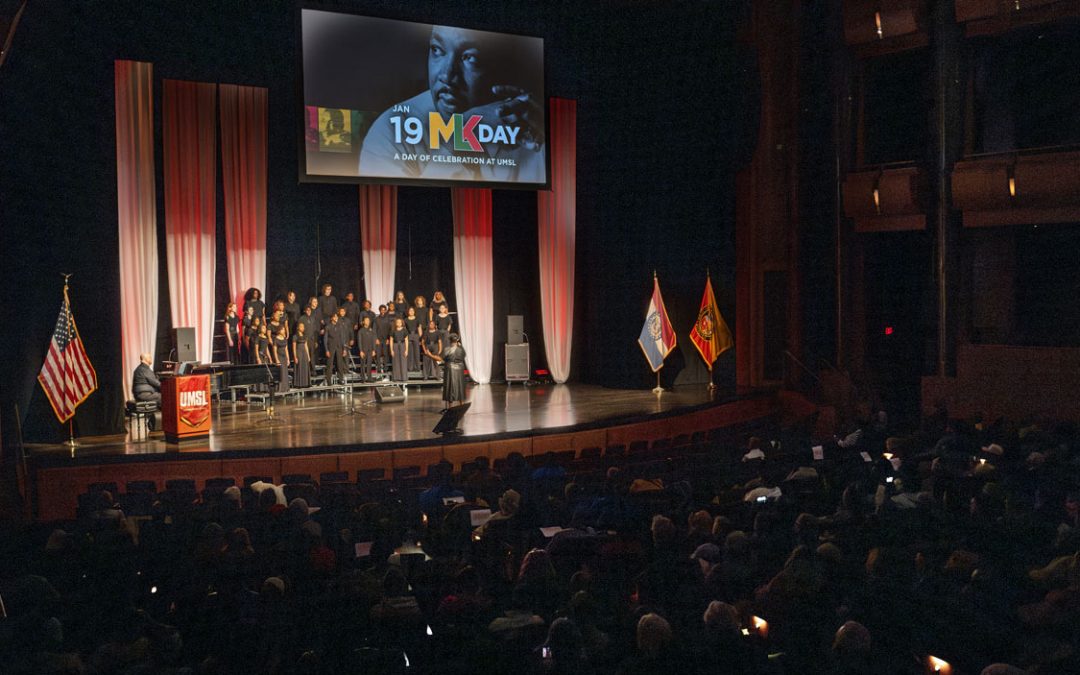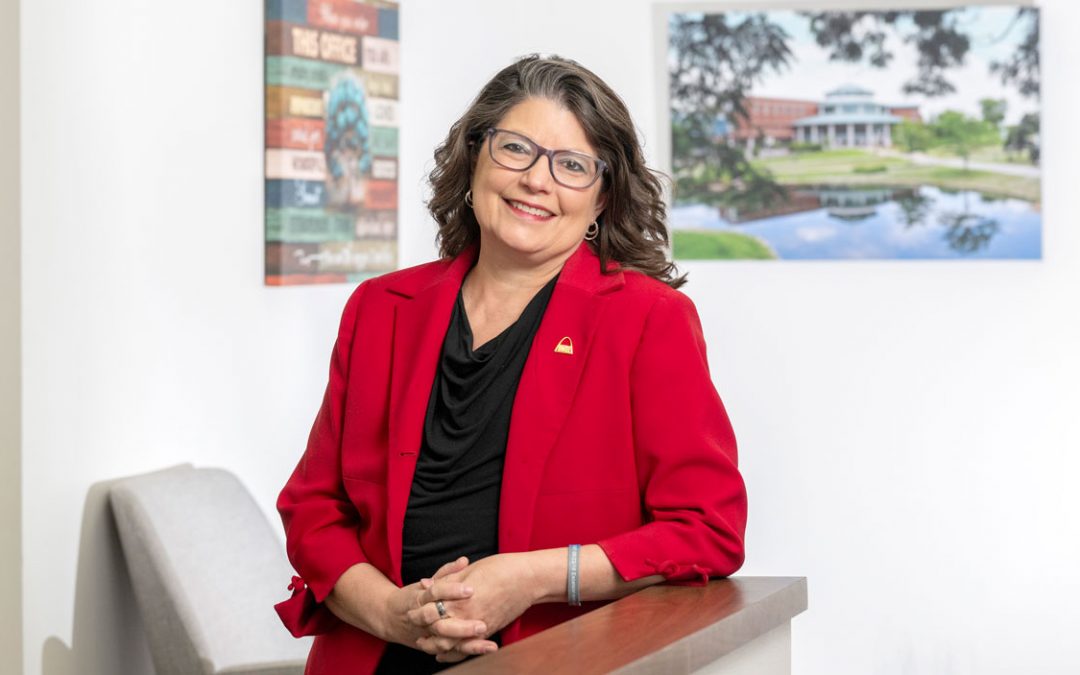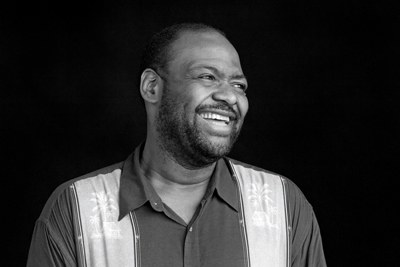
Niyi Coker, the E. Desmond Lee Endowed Professor of African/African American Studies at UMSL, is a playwright and director who's actively involved in the St. Louis performing arts scene. (Photo by August Jennewein)
Lagos, Nigeria, shaped Niyi Coker. Growing up there, he was surrounded by a culture rich with public theater and music performances. Coker welcomed the warm embrace of the arts. “It enhanced my interest in theater,” says the E. Desmond Lee Endowed Professor of African/African American Studies at the University of Missouri–St. Louis.
Coker has gone on to serve as director of professional theater companies in five countries. He’s directed more than 50 plays, among them the UMSL original musical “Booth!” about the effect an infamous assassin’s dastardly deed had on his family. Also a noted playwright, Coker co-wrote “Booth!” and his most recent dramatic effort, “Preemptive,” a play that toured three continents and drew praise from the BBC.
Yet Coker’s talents go beyond the theatrical. He’s overseen documentary film festivals and playwriting competitions. And he has a pair each of books, documentaries and feature films under his belt. That includes the award- winning “Pennies for the Boatman,” a period piece shot on location in St. Louis using mostly UMSL resources and currently screening on the film festival circuit.
Growing up in Nigeria, what influenced you to explore the performing arts?
My mother’s brother was a renowned dramatist who studied at Yale University School of Drama. He was one of the biggest influences in my life. I spent a lot of vacations watching him direct and reading his plays. I knew at a young age that was what I wanted to do.
How do Nigerian and American theater productions differ?
The infusion of technology into performance. African performance, essentially, doesn’t rely heavily on lighting. It doesn’t rely heavily on sets. It relies mostly on performance. That was new for me. Over here, technology is used as part of the spectacle.
You usually have a few different projects in the works at any given time. What have you been up to?
I’m working on a new documentary titled “Ota Benga.” Ota Benga was a guy from the Congo – a pygmy – who was brought to the St. Louis World’s Fair at Forest Park in 1904. And at the end of the World’s Fair, he was displayed at the Bronx Zoo. He was right in there with the monkeys and the baboons, and people actually came to see him. Eventually he was released and sent to Lynchburg, Va., to the Virginia Theological Seminary and College. It was there where he took his life when he realized he wasn’t going to go back to the Congo. The documentary has taken me to Oxford, to Brussels, to Cameroon and to the pygmy people. It should be ready around December.
And you’re making your return to the director’s chair for a UMSL theater performance this year.
I haven’t directed on campus for a while – not since “Booth!” in 2007. That’s changing this winter. I’m excited to be directing “Intimate Apparel.” It’s a Pulitzer Prize-winning play written by Lynn Nottage. Her family is from Barbados. I do a lot of the film festival work in Barbados. And the Barbados National Cultural Foundation is inviting the production from UMSL to Barbados in March. What they’re proposing is a half Bajan, half UMSL student cast. We’re working toward that now.
Now that you’ve been here for about six years, what are your thoughts on the St. Louis performing arts scene?
It’s vibrant and easily accessible, and there are a lot of very talented people in this city. I’ve seen a lot of actors work here, and I’ve been really impressed and blown away by their performances. You can also get by on doing a lot here on a very low budget. We could not have shot “Pennies for the Boatman” in New York. You couldn’t shoot “Pennies” for a million pennies in New York. You would need at least a billion pennies. So we’re fortunate in that context.




